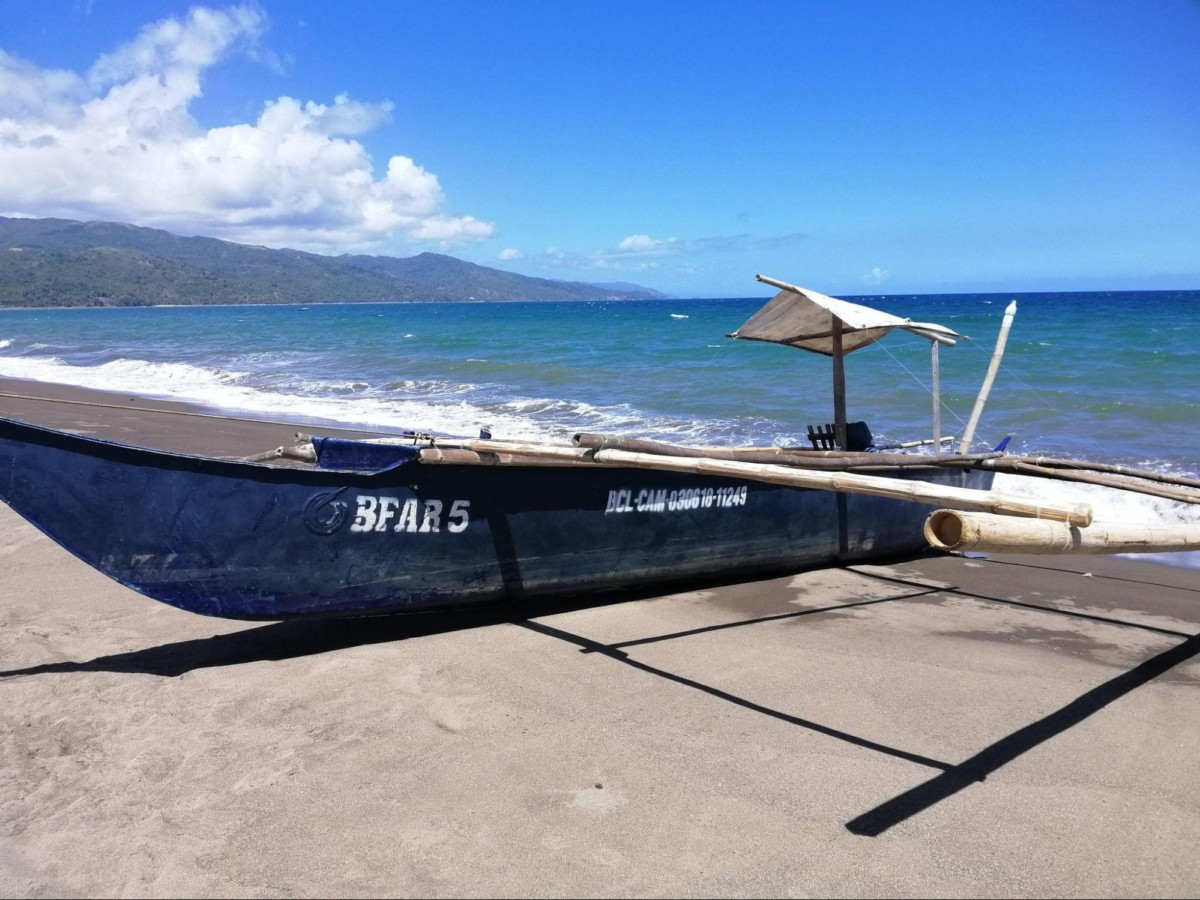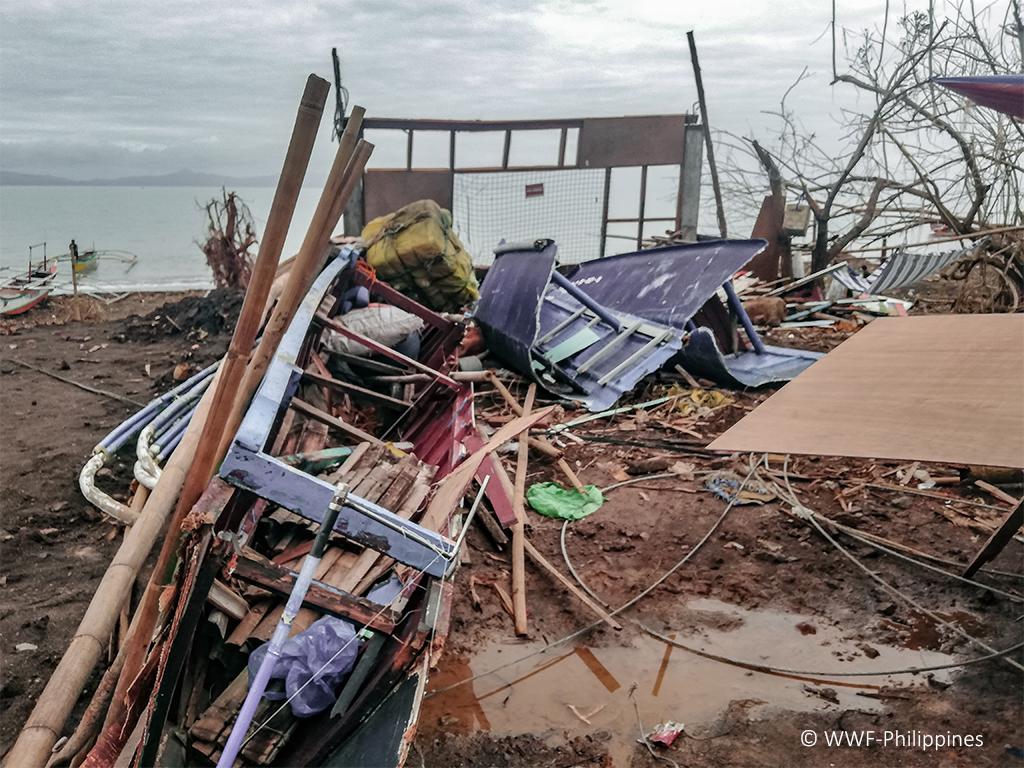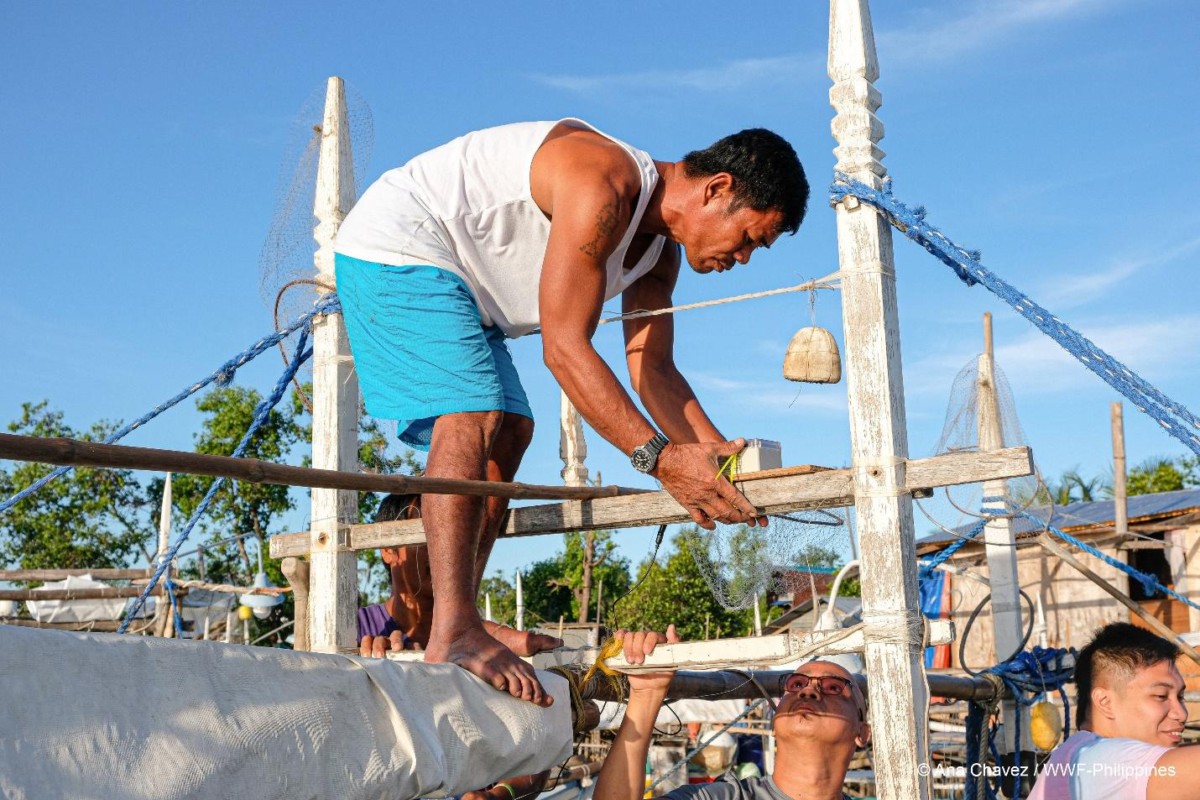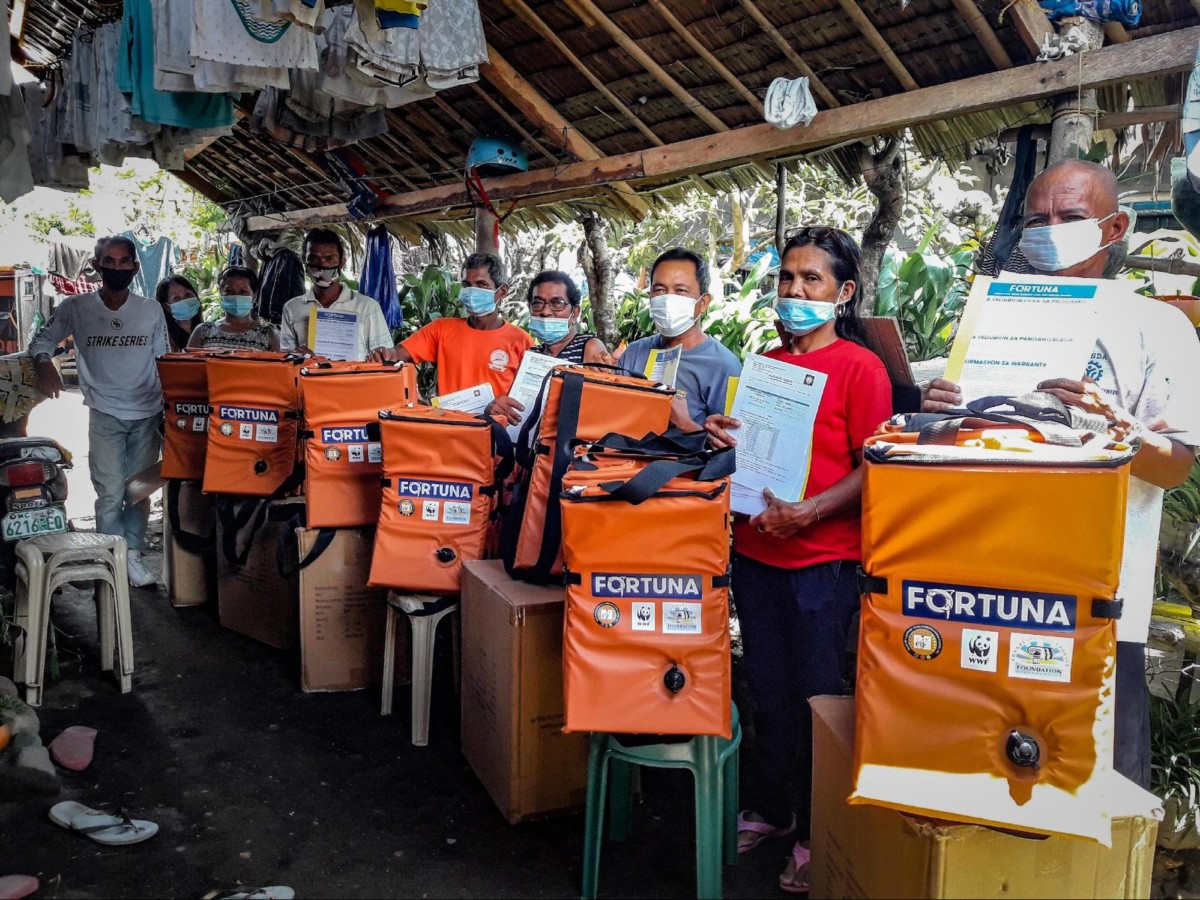WWF-Philippines Commits to Helping Storm Victims Build Back Better with Sustainable Fiberglass Boats
December 2020

A prototype for sturdy, yet affordable, fiberglass boats for handline fishers, as provided by the Bureau of Fisheries and Aquatic Resources. WWF-Philippines will be supporting Bicol fishers as they build their own fiberglass boats, to replace those that were lost in the recent storms that struck the Bicol region. Photograph © WWF-Philippines
The World Wide Fund for Nature (WWF) Philippines will now work to repair and replace the partially and wholly damaged boats of Bicol fishermen, as the organization moves into its second month of relief work in the region.
This relief effort comes after the Bicol region sustained widespread damage from typhoons Molave, Goni and Vamco from October to November. Of the 112 fishing communities WWF-Philippines works with, all suffered heavy damage, with boats and whole houses left in pieces.

Shattered boats are strewn across the shore in the wake of Supertyphoon Goni. Without their boats, small-scale handline fishers have little means to earn a livelihood, making it harder for them to rebuild. Photograph © WWF-Philippines
Lost Livelihoods
The recent storms took much from the people of Bicol – including their means of taking care of themselves and their families.
Small scale handline fishing is the main source of livelihood for many of those living in the communities that line the shores of Lagonoy Gulf, Bicol. Considered to be a more sustainable practice, handline fishing makes use of a single hook and line to catch a small number of fish at a time.
Many handline fishers are also among the most vulnerable to climate change. With small houses and little income, each storm can spell disaster for handline fishers. With their livelihoods tied to their boats, it can be difficult for them to build back once a storm has passed.
“Of the thousands of handline fishers we’ve been working with, so few of their boats are left. They’re in splinters on the shore, torn into little pieces or gone altogether,” said WWF-Philippines Project Manager Joann Binondo. Through the Sustainable Tuna Partnerships program, Binondo works to support and empower fishing communities in and around Lagonoy Gulf. Of the 112 communities she has worked with over the past decade, little remains.
“This is a very difficult situation our fishers are now in. It is difficult for them to rebuild, when they can’t even head out to sea to earn a livelihood,” added Binondo.

A man installs a GPS tracking device onto his boat. The boats of Bicol fishers will come with their own tracking devices, to allow authorities to monitor fishing operations and to ensure sustainable practices are being followed. Photograph © Ana Chavez / WWF-Philippines
What it Means to Build Back Better
WWF-Philippines is committed to repairing and replacing the boats that were lost in the recent storms. More than that, though, WWF-Philippines wants our fishers to build back better – as champions of sustainability.
The boats themselves are to be made of fiberglass, as opposed to the usual wooden-hulled vessels used by many fishers. Aside from helping to save on wood, fiberglass boats are known to be sturdier and more storm-resilient. As storms continue to grow in strength over the years, stronger hulls can go a long way towards helping fishers.
Part and parcel to the relief effort will be a redesign of the boats once used by the fishers. GPS trackers and collapsible coolers will be given out with each boat, to push sustainable practices in the region while helping fishers earn more off of each catch.
WWF-Philippines will also only be repairing the boats that were damaged, and replacing those that were lost. No new boats will be given to the communities around Lagonoy Gulf, to keep within the carrying capacity of the region and to keep the fisheries from becoming overfished.
“We cannot forget our commitments to the environment in pursuing our relief work. There’s a way to balance both, and that is what we are doing. If we sacrifice the environment in the conduct of our relief work, it will all be for nothing,” explained Binondo.

Collapsible coolers, which will be given out to fishers to complement their new fiberglass boats. Beyond recovery, WWF-Philippines is working to empower the fishers of Bicol, so that they may rebuild and recover on their own. Photograph © WWF-Philippines
Support the Handline Fishers of Bicol
“We cannot say our relief work is complete until our fishers are able to take care of themselves once again. That is why they need their boats. This is about helping our fishers, so that they may help themselves and their communities,” added Binondo.
WWF-Philippines continues to explore new ways to help the fishers of Bicol as the organization moves further into its relief efforts. As it does, the organization remains committed both to its communities and to conservation, finding ways to care for both people and planet. Support WWF-Philippines, and help #ChangeTheEnding of this climate crisis – for our fisheries, and for those that depend on them.
Donate now at https://support.wwf.org.ph/project-silong/ and support the fishers of Bicol!
For more information, please contact:
Ms. Joann Binondo
Sustainable Tuna Partnerships Project Manager
jbinondo@wwf.org.ph
For media arrangements, please contact:
Ms. Pam Luber
Integrated Communications Manager
pluber@wwf.org.ph
Ms. Chezka Guevarra
Public Relations, Media, and Events Assistant Manager
cguevarra@wwf.org.ph
